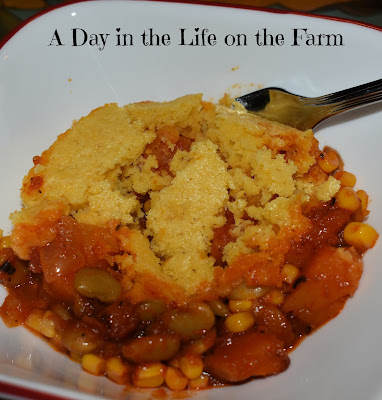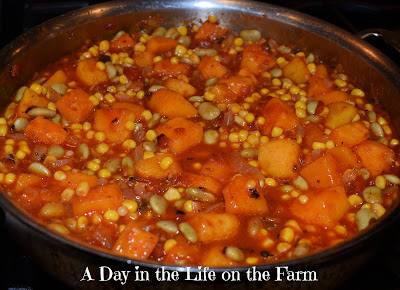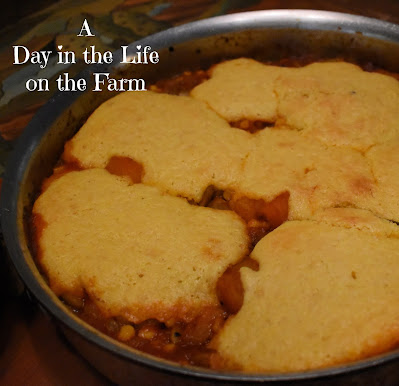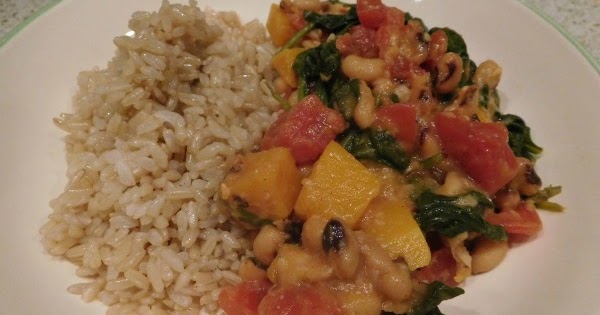Indigenous tribes of the USA and Canada relied on the "Three Sister Crops" for much of their food. These crops are Beans, Corn and Squash. They grew abundantly back then and they continue to grow abundantly today. Our Farmer's Markets are full of these items that were introduced to us by the Native American tribes that had their homes here before our arrival.
Evelyne of CulurEATZ invites us every month to join her in Eating the World by visiting different regions around the globe. This month she widened the area to include all Native Americans.
Let's take a look at what everyone brought to the table today........
- Sneha’s Recipe: Three Sisters Soup-Native American
- Magical Ingredients: Succotash
- A Day in the Life on the Farm: Celebrating the Algonquin Indian Tribe with 3 Sisters Casserole Skillet
- Amy’s Cooking Adventures: Butternut Chowder
- Culinary Adventures with Camilla: Purple Corn and Api Morado
I live in the town of Algonac, named after the Algonquians who settled in the area. Once colonization began the Algonquin Indians became very involved in the fur trade and used our waterways for transport. We neighbor Walpole Island, accesible only by water, in the St. Clair River and belonging to Canada. It houses the First Nation Reserve. Each year a pow wow is held at our local high school with Native American Dancing, Crafts and Food.
From Wikipedia:The Algonquian are one of the most populous and widespread North American native language groups. Historically, the peoples were prominent along the Atlantic Coast and into the interior along the Saint Lawrence River and around the Great Lakes. This grouping consists of the peoples who speak Algonquian languages.
I made the filling in a large, oven proof skillet so that when I added the cornbread topping I could pop it right into the oven and not dirty anymore dishes. I love the convenience and ease of one pot meals and this one was a huge success. The Teen ate 2 servings of it and finished the leftovers for lunch the next day.
This is a great dish to make using fresh, seasonal veggies and I had planned on using fresh corn, green beans and summer squash however, on the day I made this I only had fresh corn that I took off the cob. I had some lima beans and butternut squash in my freezer so those went in instead of the fresh. It was delicious and while eating seasonally and fresh is wonderful it is also wonderful to use up some of the produce that you have stored in your freezer and pantry.
Yield: 6 servings

Three Sisters Skillet Casserole
Indigenous Americans often combined their crops of the 3 sisters for meals. These sisters are corn, beans and squash. I turned them into a skillet cassserole and topped it with another Native American recipe of cornbread.
Prep time: 20 MinCook time: 40 MinTotal time: 1 Hour
Ingredients
- 2 T. olive oil
- 1/2 lg. onion, diced
- 3 cloves garlic, minced
- 1 lb squash of choice, cut into 1" dice, I used Butternut
- 1 pint or (15 oz) can of diced tomatoes
- 2 T. tomato paste
- 1 t. ground coriander
- 1 t. cumin
- 1 t. chili powder
- salt and pepper, to taste
- 3/4 c. broth of choice
- 1 c. fresh or frozen corn kernals
- 1 c. fresh, frozen or canned beans (I used lima beans)
- 1 1/4 c. cornmeal
- 1/2 c. flour
- 2 t. baking powder
- lg. pinch of salt
- 2 T. butter, melted
- 1 c. milk
Instructions
- In a large, oven safe skillet, heat the olive oil over med high heat. Add the onions and garlic and cook until fragrant and translucent. Stir in the squash, tomatoes with their juices, tomato paste, cumin, coriander and chili powder. Stir in the broth, beans and corn, season with salt and pepper, and bring to a boil.
- Reduce heat to a simmer and cook until squash is tender, about 15 minutes.
- While stew simmers, mix together the cornmeal, flour, baking powder, salt, butter and milk just until combined. Set aside.
- When squash is tender, place 6 dollops of cornbread mixture onto the top of the stew and place in a preheated 375* oven until cornbread is browned and cooked through, about 25 minutes.
Notes:
If using summer squash you will not need to include the simmering portion of the recipe.







This look delicious - especially that cornbread topping!
ReplyDeleteSo good Amy.
DeleteA great recipe with cornbread topping, mouthwatering!
ReplyDeleteDelicious Sneha.
DeleteThis is a delicious and comforting casserole! Love how simple, nutritious, and healthy the Native Americans made and this post is a great appreciation to your town!
ReplyDeleteThank you Radha.
DeleteI was looking for a way to teach my children about St. Kateri Tekakwitha, who belonged to the Algonquian tribe, and this recipe fit the bill perfectly! Thank you so much for the wonderful resource!
ReplyDeleteThe casserole smells absolutely amazing. I had to increase the quantities slightly, to accommodate my giant cast iron pan (and my family of seven). It tastes like a wonderfully hearty chili, with the added bonus of cornbread on top. We will be revisiting this one!
I am so happy that you found the recipe and that you enjoyed it so much. I"m not sure where you reside but the Pow Wow has now been moved to our Clay Township Park as part of an annual heritage festival held each May. If you don't live too far it would be a good, informative outing for the kids.
Delete